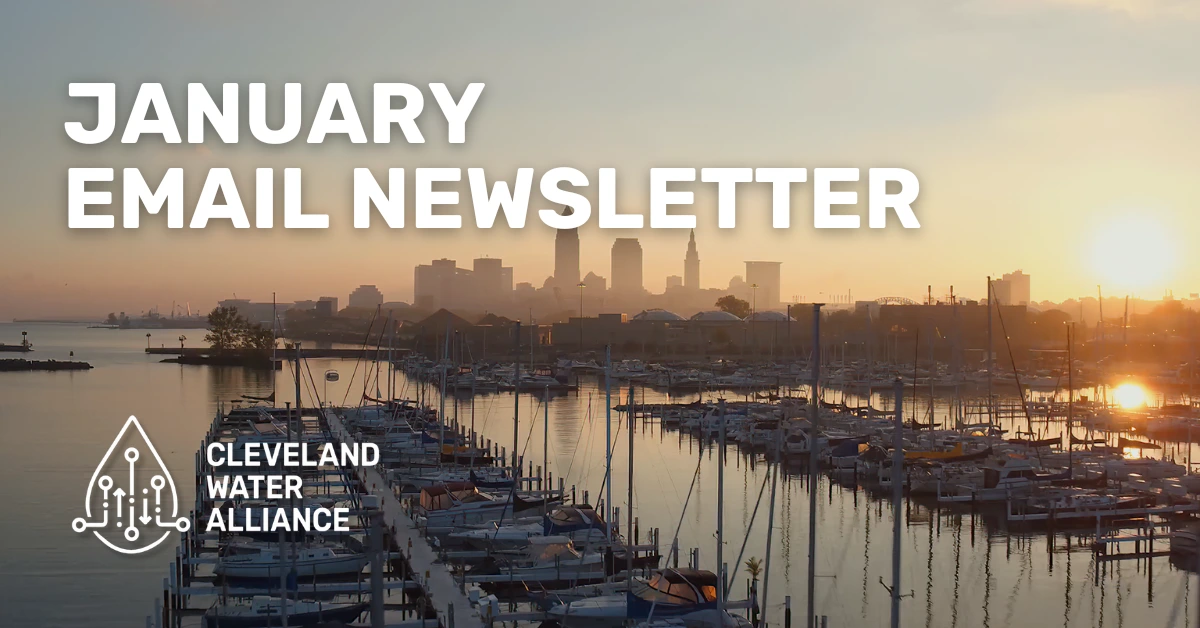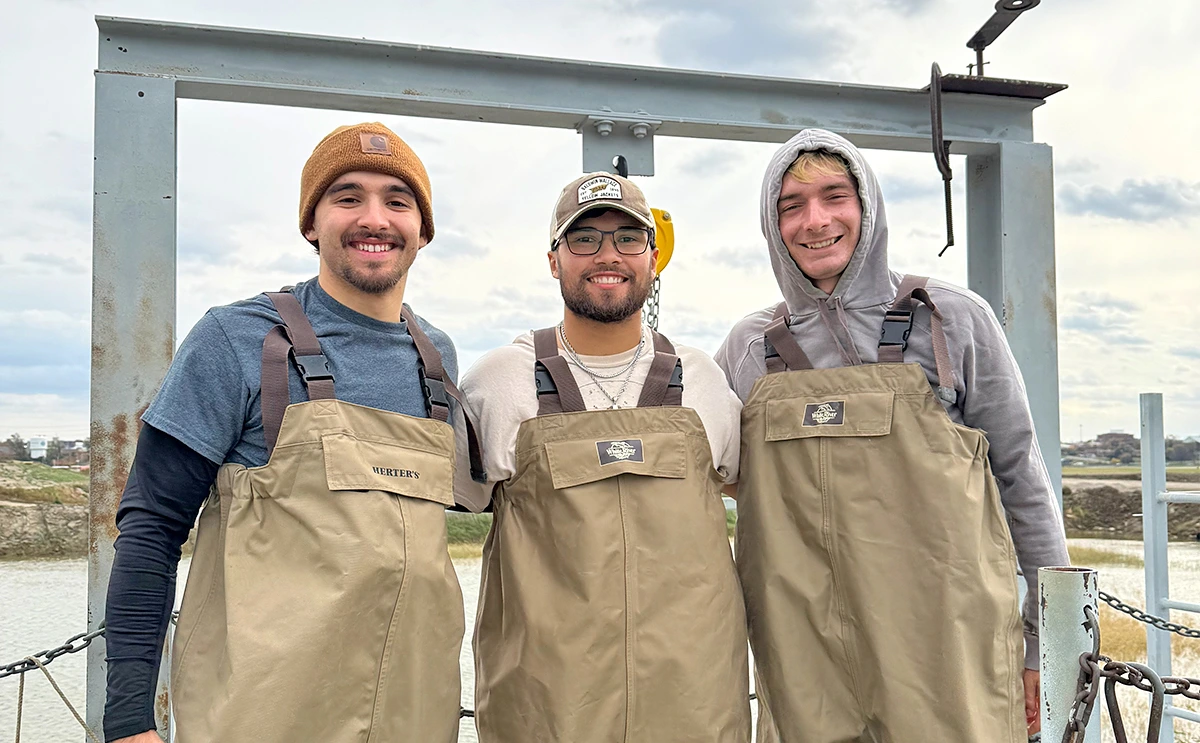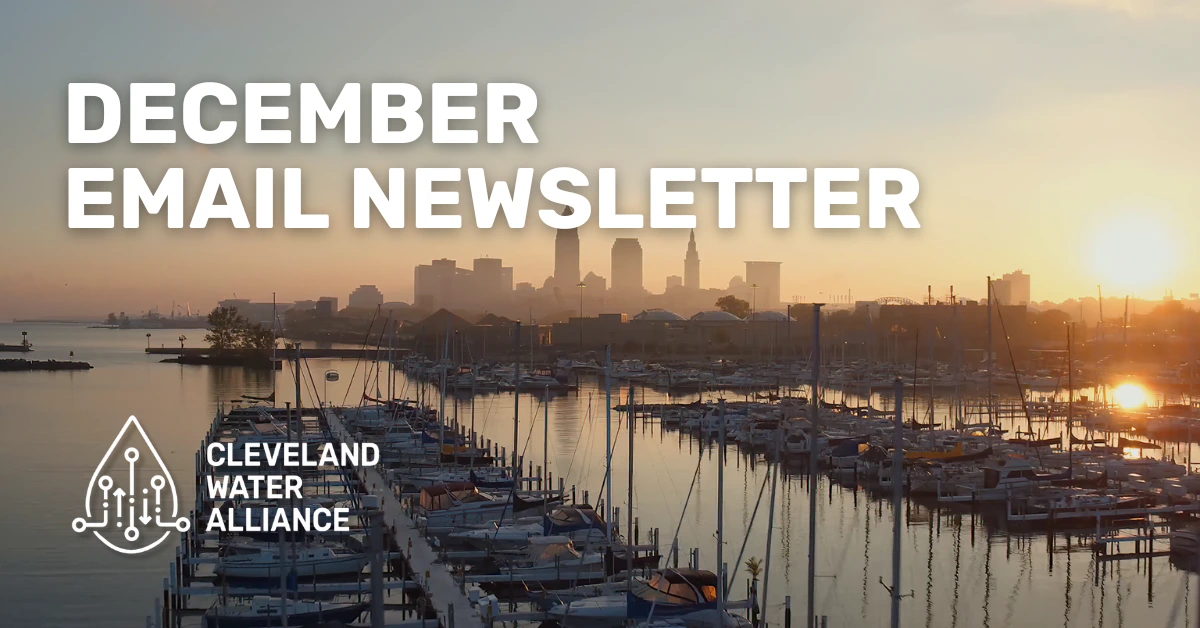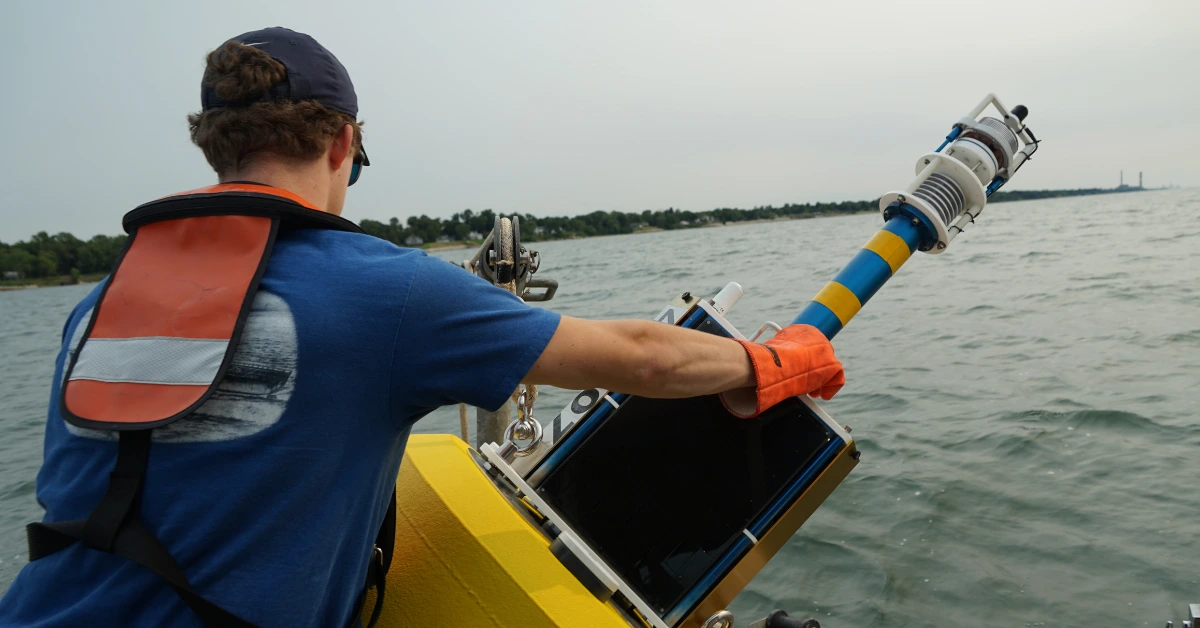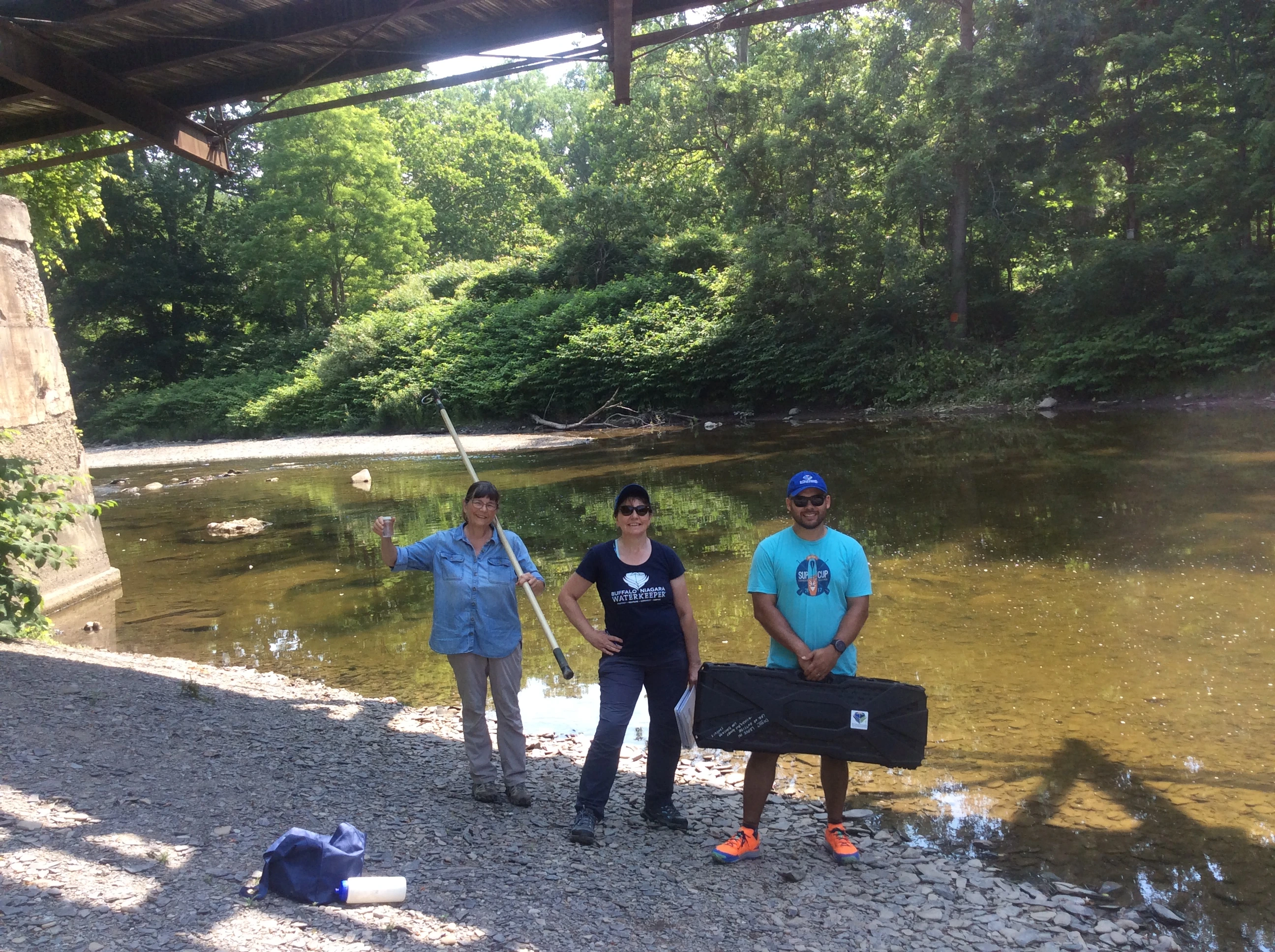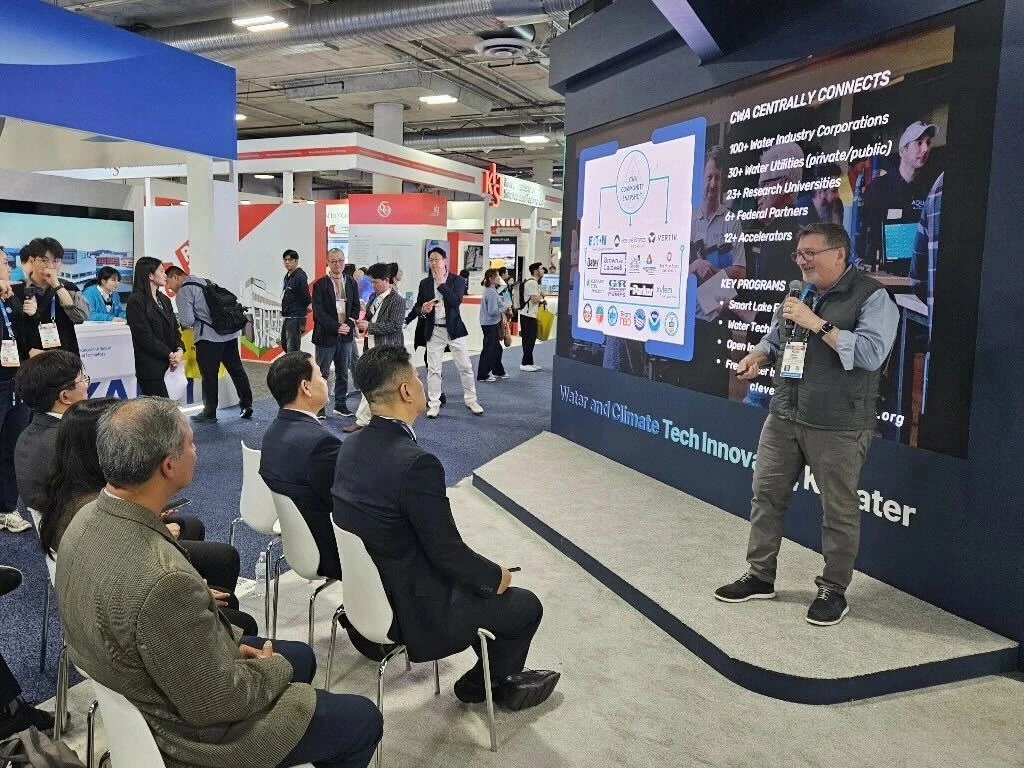Cleveland Water Alliance (CWA) team will actively participate in the upcoming 67th Annual Conference on Great Lakes Research (IAGLR 2024), which will be held in Windsor, Ontario, from May 20 to 24, 2024.
Listen to this article
We are thrilled to announce that the Cleveland Water Alliance (CWA) team will actively participate in the upcoming 67th Annual Conference on Great Lakes Research (IAGLR 2024), which will be held in Windsor, Ontario, from May 20 to 24, 2024. We're proud to be at the forefront of accelerating the water innovation, technology, and research movement, and we'd love for you to join us! Come connect with our team and discover all the amazing things we're doing to make a positive impact in water-related industries.
Learn More about IAGLR 2024
About IAGLR 2024
This year's conference theme, "Shared Lakes: One Water, One Health," underscores the critical interconnection between environmental and public health across the Great Lakes, which are vital resources shared by multiple communities and nations. The conference will feature four days of scientific sessions, networking opportunities, and insightful discussions about the health of these shared waters.
Why We’re Attending
IAGLR 2024 provides a platform for researchers, practitioners, and policymakers to exchange knowledge and foster collaborations that drive the future of water management and conservation. It is an opportunity for CWA to showcase our cutting-edge projects and cement our role as thought leaders in water research.
![[Full-Width]](https://cdn.prod.website-files.com/6377d77ba46f434de6088bc4/63d43d8c0c531b7d50733446_DSC00153.jpg)
CWA Innovators on Display
Innovators from the CWA ecosystem enjoy the advantage of presenting their research and case studies at the conference. This year AI platforms for predictive analytics, risk assessment, and resource management; environmental sensing and monitoring devices; and many other inventive technologies will be featured in CWA presentations.
Innovation in the Spotlight in Smart Lakes Session Co-Chaired by Emily Hamilton
Emily Hamilton will be co-chairing Smarter Lakes are Better Lakes: Creating an Ecosystem of Digitally Connected Fresh Water with co-chairs from partner organizations: LimnoTech, University of Windsor, and Michigan Tech. This series of 11 presentations will showcase a variety of technologies, solutions, and approaches either used in building the Smart Lake Erie Watershed or tested in CWA's Water Accelerator Testbeds.
Consider this session a water tech symposium, with submissions including experiential components such as on‐stage demonstrations of wireless sensor networking or navigating real-time data with VR technology along with conventional research presentations. Users of the newly created testbed program will also be featured that help companies rapidly test and deploy technology on the Great Lakes. Learn more about this session here.
Volunteer Science Showcased
Volunteers in the Great Lakes region use data collected by their groups to address water quality challenges and promote local stewardship of the Great Lakes. Some groups use technology to enhance their data's credibility and usability, while others collaborate regionally to share best practices and make a greater impact.This work will be showcased in an 18-presentation session at IAGLR called "Community Science: Local Action for Resilience and Research." In collaboration with Gabrielle Parent-Doliner of Water Rangers, Max Herzog of CWA has organized a session to highlight success stories of volunteer-led science groups in the Great Lakes region, including presenters from Case Western Reserve University. Learn more about this session here.
CWA Presentations at IAGLR
Max Herzog: Max will present the "Lake Erie Baseline Assessment Framework: Telling a Community-Driven Story about Lake Erie Watershed Health." This project highlights our efforts through the Lake Erie Volunteer Science Network to unify regional groups and enhance the quality and impact of community-collected water data. Our framework empowers communities to advocate for their local waterways and contributes to comprehensive regional and Great Lakes-wide management strategies.
Ebie Holst and Team: Our session on "Oil & Chemical Spill Detection and Response within the Lake Erie Basin," developed in collaboration with the Ohio Department of Natural Resources and LimnoTech, addresses the critical need for updated spill risk maps and the deployment of advanced sensor networks. This initiative is part of our broader commitment to safeguarding the Lake Erie Basin from industrial threats.
Emily Hamilton: Emily will lead the discussion on "Building the World's Largest Smart Lake," showcasing how CWA has transformed Lake Erie into the world’s largest digitally connected freshwater body. Our network of IoT sensors and telecommunication infrastructure provides essential data to diverse stakeholders, enhancing decision-making for water quality management across multiple sectors.
Ed Verhamme from LimnoTech is a key partner in the Cleveland Water Alliance’s Smart Lake Erie Watershed implementation. His session “Small Tech = Big Impact on Great Lakes Science" discusses cost-effective technological innovations in water monitoring. This session will explore how simple advancements in sensor technology can revolutionize environmental data collection across the Great Lakes, showcasing practical applications and maintenance strategies for sustained operations. Discover the significant impact of small tech on large-scale scientific studies and ecosystem management.
Jeff Pu, along with collaborators from the Great Lakes Winter Grab Research Consortium, presents groundbreaking insights into winter limnology in a session entitled, "The Great Lakes Winter Grab: Limnological Data From a Multi-Institutional Winter Sampling Campaign." This multi-institutional effort collected standardized data on mid-winter conditions across the Laurentian Great Lakes. Explore diverse observations, from ice and snow properties to plankton communities, shedding light on the intricacies of winter limnology and its implications for ecosystem health. Learn more here.

Connect with us!
We look forward to sharing our findings and innovations with you at IAGLR 2024. Our team is excited to engage with other industry experts and attendees who are as passionate about water sustainability as we are. Visit our presentations, join the discussions, and let's explore potential collaborations!
Whether you are a researcher, a practitioner in the water industry, or simply passionate about water conservation, we invite you to connect with us during the conference. Let’s work together towards a sustainable and prosperous future for our shared waters.
.jpg)


.svg)


